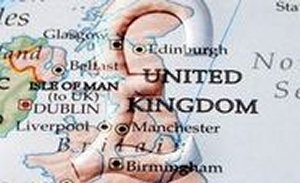According to Standard and Poor (S&P) despite the sluggish economic growth, Britain’s diverse economy and versatile monetary policy are allowing the nation to deal with an economic slowdown while managing to maintain the highest possible credit rating.
Chancellor George Osborne announced Monday that he would continue with the planned economic course of action. The news comes as relief to many in the financial markets, as a downgrade in the credit rating of the UK would cause British financial firms to incur increased borrowing costs, while also providing plenty of room for scrutiny for those in opposition to the Conservative-Liberal Democrat coalition government.
Aside from affirming the AAA credit rating of the UK, S&P also affirmed the nation’s A-1+ short-term sovereign credit rating, although the company stated that the outlook of both credit ratings appear to be stable, S&P also believes that the AAA credit rating of the UK may need to be revised if the coalition government doesn’t take a stronger approach towards reducing public debt.
The affirmation of these credit ratings reflects the adaptable financial markets and monetary policy of the UK. Nonetheless, S&P also stated in their report that the UK’s financial recovery since the global financial crisis of 2008 has been somewhat “lackluster”. It is believed that the international demand for sterling denominated UK government debt is significantly responsible for diversifying the investor base of financial markets.
Domestic institutional investors also create a high demand for long-dated gilts, creating deep capital markets for the UK. S&P’s decision to hold the nation’s credit rating stable comes as a relief to many, as just over a month ago the agency surprised markets by enacting the first downgrade of the United States’ debt rating in history, reducing it from AAA to AA plus.



